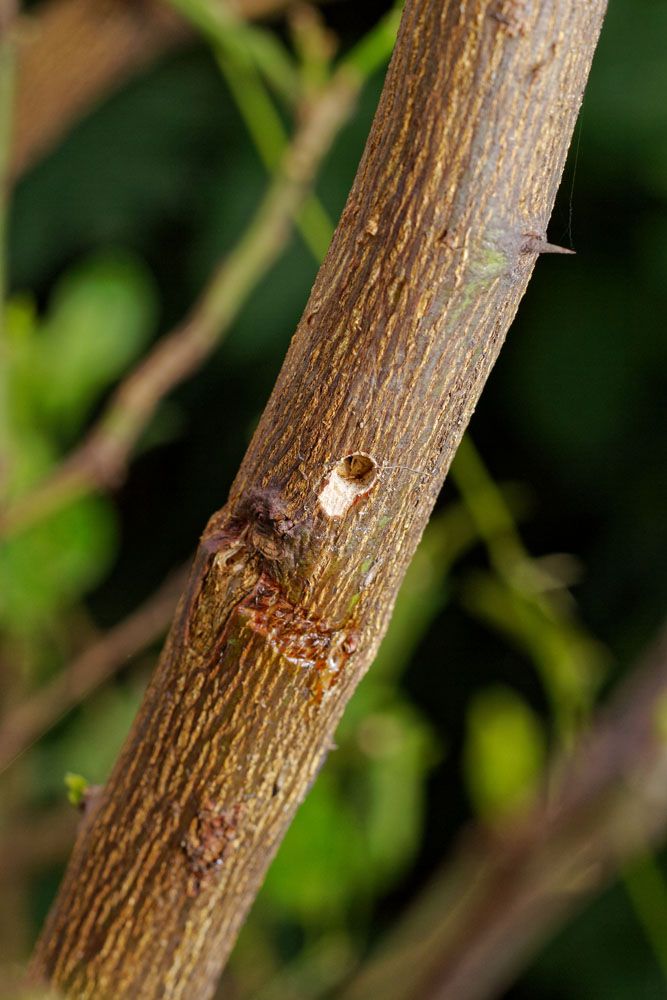
Rose Borers
Rose Borers
Gardening and obsession with growing roses is the best ever combo for any person, and that’s pretty understandable. With their luxurious look, unmatchable beauty, and adorable scent, roses are second to none. But sometimes their beauty is destroyed by some insects called borers. They live inside the rose canes, eat them internally, leaving a hole behind. So a regular check of your plant health can save you from a severe attack of the borers. If your roses are also facing the attack of rose borers, read out this article to find out, what are rose borers, how to identify them, what damage they cause and how to manage them?
Identification of Rose Borers:
Rose borers are not a single specie of insects; these are actually several types of bees and wasps that reside in the central pith of the rose canes. They are called borers due to their mode of damage as they make bores into the plant canes. They are almost an inch long having large heads. Rose borers are beneficial and harmful at the same time as they prey upon aphids and feed their young ones. So at the same time, they are saving your garden from aphids and also affecting your plants equally. They make bores in the canes to make a nest for their larvae. What actually happens is adult borers lay eggs onto the canes. As the eggs hatch, the larvae start making the bores into the canes by eating the interior tissues. As they mature and develop wings, they fly out, leaving behind a hole. Once they develop into mature wasps or bees, they do not damage the plants anymore.
Mode of Damage:
The damage caused by rose borers can be easily identified by observing the holes they leave behind in the canes. The bores are only a few inches deep and are not life-threatening unless the borers reach the main crown of the plant. As they feed on the interior tissues of the plant, they often damage the cambium layer of the stem, which helps in the growth of the plant. Sometimes, you may notice a swelling in the affected canes due to the larvae inside. The leaves of the affected canes turn brown and eventually die. In a heavy attack, stems become too weak that they often break off when the wind blows. So often check your rose plants if you notice breaking canes after some windy hours.
Management of Rose Borers:
You can prevent the attack of borers by covering the cut ends of the canes with glue or some other type of related material so that the wasps don’t find any place to lay eggs. The glue will not affect the plant but make the cut ends unstable for the wasps to lay eggs. If you find that the borers have attacked the canes, prune the affected cane well enough below the point of the nest and cover the end with glue. Don’t apply too much glue that it spreads down to the cane. Apply just as much as needed to cover the pruned end.
